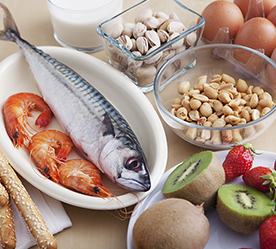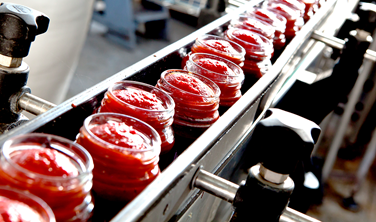Ensuring food is safe is paramount. Food and drink products are highly regulated across the UK to ensure their safety and authenticity.
The FDF maintains an open dialogue with UK regulators to ensure that members are alert to potential food safety incidents or authenticity issues, as well as cross-cutting food safety policy, so they can respond swiftly to emerging risks to protect consumers. The FDF also supports the development and sharing of best practice, aimed at ensuring regulatory compliance and high UK food standards.
For FDF members: Food Safety Committee (FSC)
The following are regulated aspects of food safety that are of high importance to our industry:
- The management of microorganisms and pathogens that can contaminate food is vital in the provision of safe food. Cleaning, cooking and chilling are key aspects of food safety management that help prevent foodborne illnesses. This is underpinned by the application of microbiological criteria, HACCP principles and a well-established food safety culture.
For FDF members: Food Microbiology Committee (MIC) - Various contaminants may impact the safety of raw materials through the supply chain, depending on their levels and inherent toxicity. These contaminants can be from the environment, occur naturally and in some cases form during processing.
For FDF members: Residues & Contaminants Committee (RAC) - Packaging plays a key role in keeping food and drink safe for consumers. Its materials and substances that come into contact with the food are subject to strict food safety regulation, whether this be plastics, paper, cardboard, printing inks or adhesives.
For FDF members: Food Contact Materials Committee (FCM) - Food additives are often needed to perform specific technological functions in order to maintain or improve certain product attributes (e.g. texture, taste and shelf-life). Alongside flavourings, these technical ingredients can only be used if authorised by the UK's Food Standards Agency and following thorough safety assessments.
For FDF members: Food Ingredients Committee (FIG) - Some people are hypersensitive to certain foods and can suffer adverse reactions, which for some can be life threatening. Food hypersensitivities include allergies, food intolerances, and coeliac disease. To inform and protect allergic consumers, allergen labelling is mandatory and manufacturers take care to manage unintended allergen presence and to control cross-contact.
For FDF members: Allergens Steering Group (ASG)
FDF Guidance on Setting Product Shelf Life
Once logged in, FDF members have access to its committees and further resources. The FDF runs several regulatory committees (such as food safety, allergens, contaminants, food contact materials, and labelling). These provide our members with not just technical updates but also the opportunity to influence our policy positions and workstreams.
FDF Food Safety and Authenticity Report (members only) - July 2024
Receive updates on this topic
Want to keep up to date on this topic?
You can receive email updates on this topic by registering for an FDF account.
You can edit your preferences so that you receive updates on the topics and the type of information you are interested in.
Interested in becoming a member?
FDF members have access to a range of benefits to grow, protect and strengthen their business.
Gain an advantage, join FDF today.
Events and webinars
Webinar

Webinar

Webinar

Related topics

Food regulation
Safe, authentic and traceable food is of the highest importance to our sector.

Allergen labelling and management
Some people are hypersensitive to certain foods and can suffer adverse reactions, which can be life threatening. The FDF assists the UK food industry through its provision of technical guidance to keep consumers safe.

Food processing
Food processing ensures we have easy access to a wide range of delicious, nutritious and safe food and drink for families whatever their budget.
